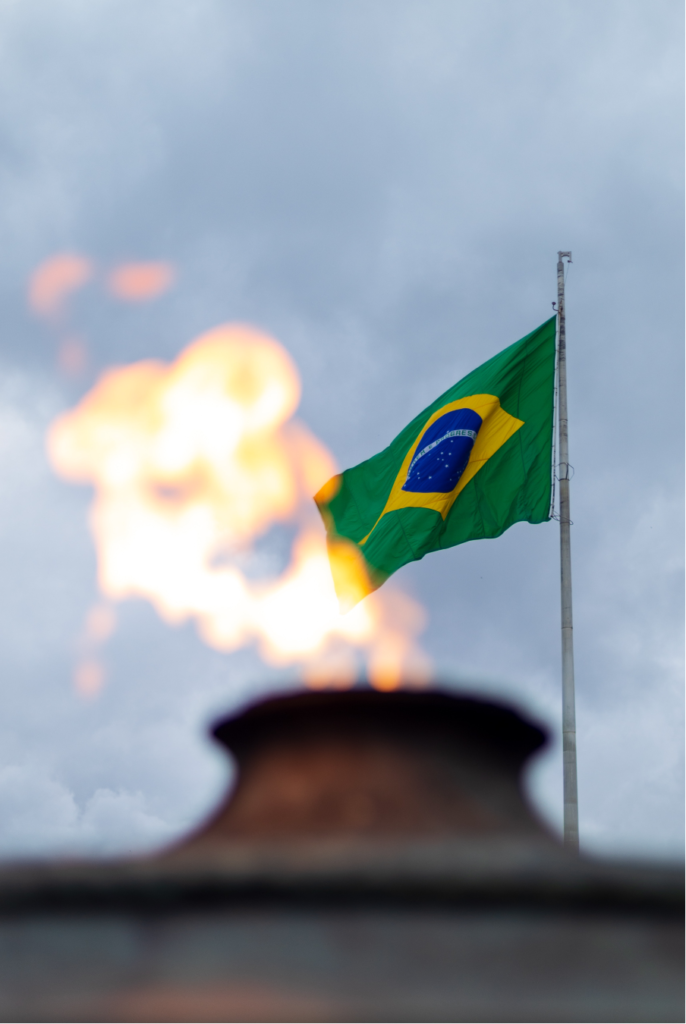On 08 January, Brazil was met with the largest attack on its democracy in decades. An attack evocative of the 06 January rioters, who overtook the US Capitol, almost two years apart to the day. The parallels are undeniable and perhaps indicative of a rising international risk of violent civil unrest against democratic institutions.
Jair Bolsonaro’s supporters could not accept President Lula da Silva’s narrow victory; to the far-right rioters this victory was a falsehood, the election had been rigged against Bolsonaro, the former President. While it is important to remember that Brazil has a longstanding issue of corruption, there were no issues of electoral fraud in this election. Hordes of extremists took out their frustrations on the Three Powers Plaza on January 8th, where they staged an insurrection, causing physical and symbolic destruction. Their efforts were to destabilize the new government. There were warning signs that an attack like this could take place, with many observers – like Gustavo Ribeiro – predicting this attack. With the visible warning signs, what is important is how this attack was facilitated, which you can find out more about on The International Risk Podcast episode with Gustavo Ribeiro.

Bolsonaro’s hardliners clung onto a misinformed narrative, which had been crafted by his big-lie rhetoric. For years, Bolsonaro has discredited Brazil’s democratic institutions and pitted his supporters against them through misleading statements and falsified theories. In particular, he has targeted the Brazilian voting system and continuously discredited it: “If I get less than 60 percent of the votes, then it means something abnormal has happened in the superior electoral court”. Bolsonaro’s hardliners ultimately grasped onto the misinformed and false narrative of a vulnerable voting system, open to fraud. This narrative has thrived on unregulated media, namely Telegram and WhatsApp. Further to this, Jovem Pan News has upheld Bolsonaro’s far-right narrative and advanced the conspiracy theories, ultimately raising their profile and legitimacy. However, Brazil’s electronic voting system has never faced credible reports of voter fraud and the 2022 elections are no different in this respect. Despite Bolsonaro’s baseless claims, he perpetuated the loss in faith of the Brazilian voting system and thus the idea that Brazil’s 2022 elections were stolen. Bolsonaro has been inspiring an extremist movement, but also, intentionally, or unintentionally, a national security threat, for which he may face prosecution.

The 08 January insurrection in Brazil demonstrates the risks of anti-democratic leaders, misinformation, and far-right extremism, as well as the threat they are to democracy. Misinformation must be combatted through a multifaceted response, by both private and public actors. While another riot, or attack on this scale in Brazil is unlikely, the threat of far-right extremism to democracy must be monitored; Human Rights Watch researchers Deborah Brown and Maria Laura Canineu argued that the attack in Brazil could manifest as an international risk, “given Brazil’s size and influence”. While discontent rises globally, there is a risk of extremist groups becoming galvanised.
What remains after the insurrection is a deeply polarised, divided society in South America’s largest democracy. Lula is left with monumental challenges. The new President must remain committed to his promise of uniting the people of Brazil. Vital to this, Lula must find a way of making a sizeable portion of his electorate perceive him as their legitimate leader and restore their faith in Brazil’s democracy. As Gustavo Ribeiro argued on The International Risk Podcast, economic success will be an important factor in the new President garnering more support. Aside from these issues, Lula continues to face widespread social and political issues, namely corruption, crime, violence, poverty and inequality, which you can hear more about on The International Risk Podcast.